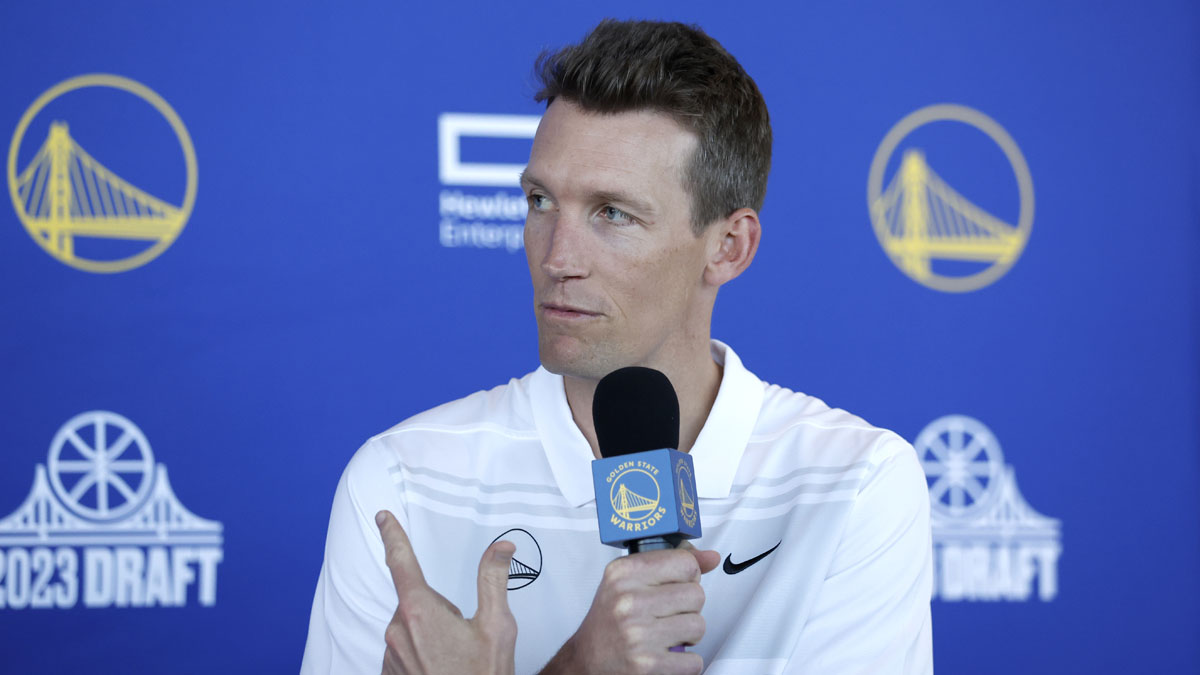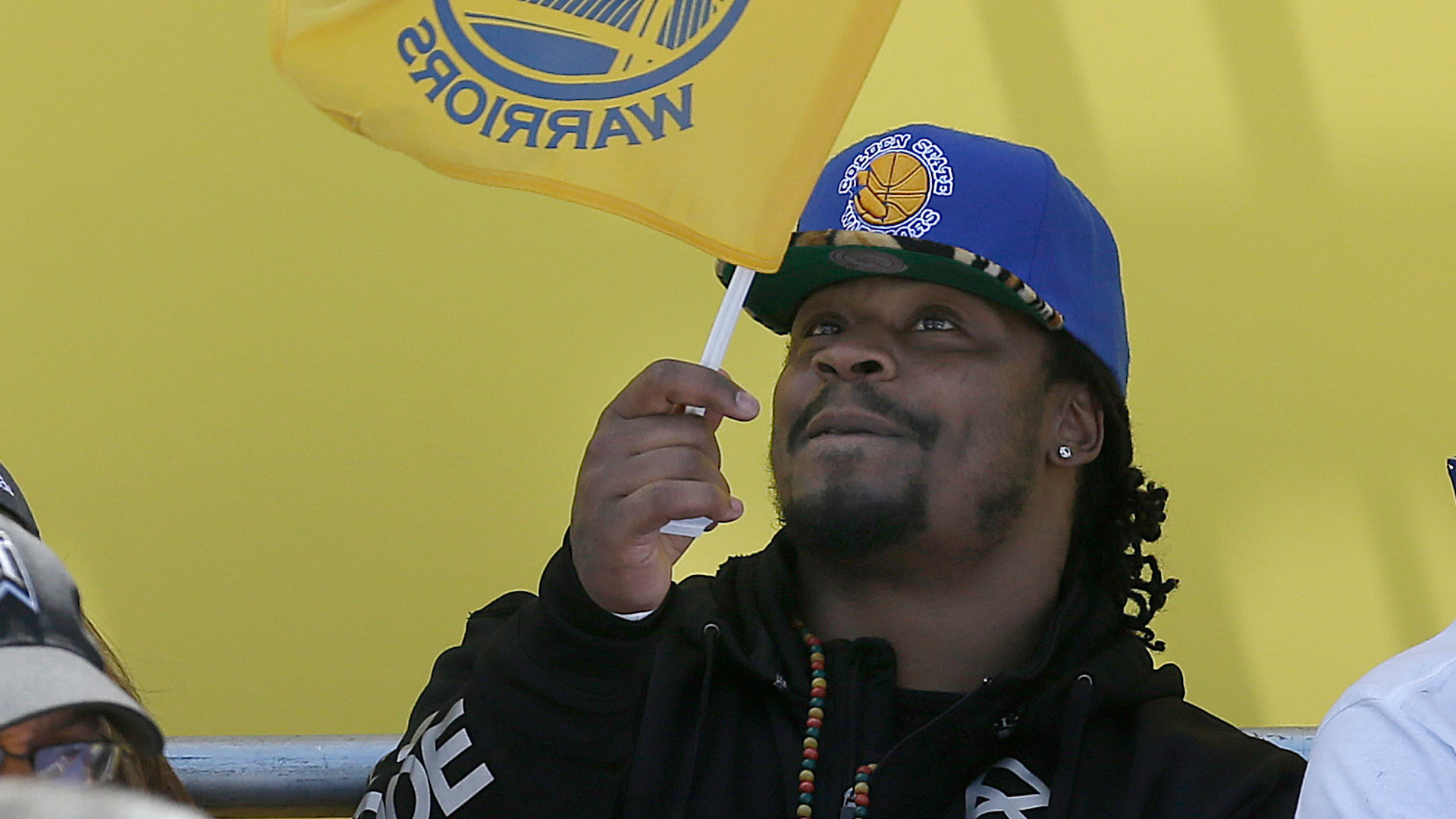In the 26 days since they were walloped into the offseason, the Warriors have spent considerable time examining their bruises. And not just those formed by the hands of the Los Angeles Lakers.
They are, according to multiple team sources, undergoing a comprehensive evaluation of everything that sent them home in the second round of the NBA playoffs. Everything is under the microscope. Coaching decisions. Roster usage. Rotation management. Judgment not only by young players but also members of the four-ring club.
Those issues are deserving of deep scrutiny, but those in the organization realize they are easier to address and repair than the Big One.
Stay in the game with the latest updates on your beloved Bay Area and California sports teams! Sign up here for our All Access Daily newsletter.
Chemistry.
The culture of accountability built under coach Mark Jackson and taken to admirable heights by Steve Kerr was the envy of the league. The Warriors were a first-class operation, with Stephen Curry’s exuberance setting a tone of joy and prosperity. They were winners. They were tight. There was trust.
The Warriors were precisely as Kevin Durant perceived and felt seven years ago in discussions with players, coaches and executives. That sense of brotherhood -- and the chance to win a championship -- persuaded the most coveted free agent in history to sign up.
That camaraderie was shattered last October, 12 days before the season opener, when veteran forward Draymond Green, the team’s spiritual leader, unleashed a spasm of violence upon young guard Jordan Poole.
Golden State Warriors
Outgoing general manager Bob Myers, one of the best mediators in sports, conceded during his farewell news conference last week that “this a hard year ... I’d be lying if I said it wasn’t.” There was no need for elaboration.
Kerr more directly acknowledged the fracture during his season-ending news conference last month.
“Some of that that was lost this year for sure,” he said. “There's no hiding from it, the incident with Draymond and Jordan at the beginning of the year played a role in that. It's hard for that not to impact a team.”
Animosity didn’t surface on the court. High-fives kept coming. So, too, did pats on the butt and words of encouragement. But the relative harmony that defined the Warriors for so long was merely superficial. The truth came to the surface when the team took to the road.
No way on God’s green earth that the Warriors, with their talent, lose 30 of 41 road games if they’re in emotional lockstep. Unified teams flourish on the road because they revel in the solidarity. They’re boarding the same flight. Staying at the same hotel. Buddying up for meals.
The Warriors of yore looked forward to the road because enjoyed the mutual company. They were 149-56 (.727 percent) during their five consecutive trips to the NBA Finals. That’s more than talent. For comparison, the Michael Jordan Bulls were 171-75 (.695) on the road during their six championship seasons.
When those Warriors had no choice but to be together, they were the best road team in NBA history.
When these Warriors were forced to be together, they splintered in a several directions and posted one of the worst home/road splits in NBA history.
“Anytime some trust is lost, then it makes the process much more difficult,” Kerr said last month. “And there was some trust lost. That's as blunt as I can be.”
That was 22 days ago. There have since been countless meetings, some limited to coaches, some with coaches and front office personnel. It has become clear during those sessions that the mode of operation in 2022-23 cannot and will not be repeated in 2023-24.
That it won’t be acceptable -- to Kerr, to the front office or to CEO Joe Lacob.
Those behind the walls of Chase Center are pinning their hopes that Kerr, entering the final season of his contract, can pick up the pieces of the team and reassemble them next season. And that he is confident he can.
“The only way to try to correct course is to continue to communicate with players and coaches, and those relationships have to be built,” Kerr said last month. “The bonds have to be built. I think the focus for us this off-season is we have to get back to what has made us really successful, which is a really trusting environment and a group that relies on one another and makes each other better.”
Which is not to suggest coaches and team executives have not had internal debate over the other issues, from the assets and liabilities of Jonathan Kuminga, Poole and Green to the reliance on Anthony Lamb, who spent most of the season under a two-way contract. All that and more has been on the table.
But the Warriors recognize those concerns won’t matter if they can’t heal the wounds of last season and find their way back toward something resembling the culture that served them so well.


